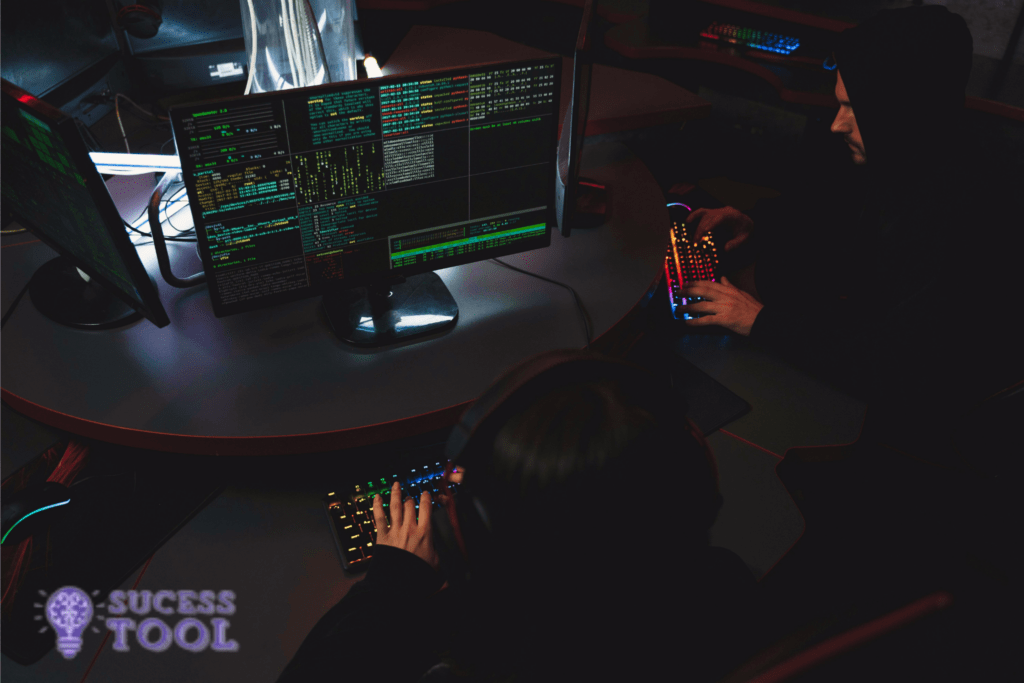Why Technology in Education Takes Ethical Hacking?

Schools and universities are using new technological tools to improve communication and learning as our world becomes more digital. Although there are benefits to digital education. There are also new hazards, especially in cybersecurity. Because individuals, companies and schools are all susceptible to cyberattacks, cybersecurity education is crucial. A key element of contemporary digital education is ethical hacking, which is the process of finding and fixing security flaws in a system with authorization. Educational institutions can assist students in becoming responsible, competent, and cyber-aware digital citizens by integrating ethical hacking into the curriculum.
Comprehending Educational Ethical Hacking
Ethical hacking, sometimes known as White-hat hacking, is the use of hacking techniques to find and address security vulnerabilities. Black-hat hackers, on the other hand, take advantage of systems for malevolent ends. Ethical hackers are a useful expertise in today’s security landscape since they collaborate with organizations to protect sensitive data and stop cyberattacks.
Ethical hacking is much more than just a technical skill set in the context of digital education. Students learn how to think critically, solve problems, and have a deep awareness of security and moral obligation. Students gain an understanding of cybersecurity and the importance of appropriate internet activity as they participate in ethical hacking.
Getting Students Ready for a Developing Field
Professionals in cybersecurity are in high demand. Recent research indicates that a shortage of qualified personnel is the reason why cyber-related employment vacancies go unfilled. Giving pupils a head start in a subject that is both profitable and vital, ethical hacking education provides doors to employment in cybersecurity. Students who study ethical hacking acquire abilities that help them in their careers and their roles as responsible digital citizens through coursework, workshops and certifications.
From fundamental cybersecurity concepts to more intricate subjects like penetration testing and network defense, ethical hacking training programs frequently cover a broad range of subjects.
Teaching Ethical Awareness and Digital Responsibility
Technical proficiency is only one aspect of ethical hacking. Another is establishing a moral code for conduct online. Students gain a greater awareness of their responsibility to uphold a secure online environment as they master responsible hacking techniques. Students learn about the repercussions of their activities, are held accountable and develop a sense of responsibility through digital education that incorporates ethical hacking.
Students learn why hacking should only be done legally and with the appropriate authorization through lectures in digital ethics. This keeps knowledge from being misused in the future and motivates students to utilize their abilities to defend systems rather than take advantage of them. A more cyber-aware generation ready to make constructive contributions to the digital landscape can be produced by teaching ethical hacking alongside safe internet use.
Practical Education and Problem-Solving Abilities
Due to it’s intrinsic hands-on nature, ethical hacking is a fun and useful learning method for pupils. Students examine and try to break simulated security systems in real-world circumstances as part of ethical hacking exercises. They acquire expertise in risk assessment, vulnerability analysis, and defense tactics via trial and error.
Student’s problem-solving abilities are improved by this practical method, which pushes them to use critical and creative thinking to tackle challenging problems. In addition to learning how to Think Like A Hacker. Students also learn how to for see and counteract security problems. Given that problem-solving and critical thinking are useful in all professions, this mentality can be advantageous in several sectors outside of cybersecurity. Thus, ethical hacking based digital education equips students with real-world knowledge and the capacity to tackle problems from several perspectives.
Developing a Culture of Cybersecurity
A cybersecurity culture is promoted throughout the organization by integrating ethical hacking into digital education. Schools foster a climate where professors and students are knowledgeable about digital security threats and how to safeguard their devices and data by emphasizing proactive cybersecurity practices. As students apply their understanding of cybersecurity to their daily lives and potential careers, this awareness transcends the classroom.
Students who attend schools that place a high priority on cybersecurity are ready for a world where staying secure online is essential. Students who receive ethical hacking training comprehend these fundamental ideas and can use them in a range of situations, from creating secure passwords to spotting phishing efforts.
Fighting Off Cyberthreats in Classrooms
Because of the amount of personal data they store, fraudsters frequently target schools and colleges. Cyberattacks on educational institutions have significantly increased during the last ten years, resulting in data breaches, financial loss, and endangered student privacy. Schools can strengthen their defenses against these dangers by providing professors and students with cybersecurity and ethical hacking education.
As part of a supervised curriculum, ethical hacking programs enable students to find possible threats and weaknesses in the digital systems used by their school
and suggest fixes. Schools are less susceptible to cyberattacks thanks to this proactive approach, which also protects the data of professors and students.
Developing Cybersecurity Inclusive and accessible
Programs for ethical hacking also offer a chance to open up cybersecurity to a larger audience, particularly marginalized groups in the computer industry.
Students from a variety of backgrounds are exposed to cybersecurity occupations at an early age through the introduction of ethical hacking in schools. Encouraging diversity and inclusion in cybersecurity can aid in closing the gap in the tech sector.
A more diversified talent pool is produced by initiatives to introduce young women, persons of color, and other underrepresented groups to cybersecurity. By raising knowledge of ethical hacking and digital responsibility, these inclusive programs can make it a more relevant and alluring career option for a wider spectrum of pupils.
Conclusion: Creating a Secure Digital Future
Teaching ethical hacking in schools gives pupils the information and abilities they need to navigate and safeguard the digital world in an era where cyber risks are becoming more prevalent. In addition to preparing students for careers in cybersecurity, ethical hacking education promotes critical thinking, moral awareness, and a cybersecurity culture. Schools can significantly contribute to the development of a generation of knowledgeable, competent and responsible people who can protect our digital future by emphasizing ethical hacking in digital education.
The importance of ethical hacking in the current digital education environment is discussed in this article, along with the moral and useful skills that students acquire from these programs.
© 2024 @ Jai Japnaam Technologies Private Limited.
